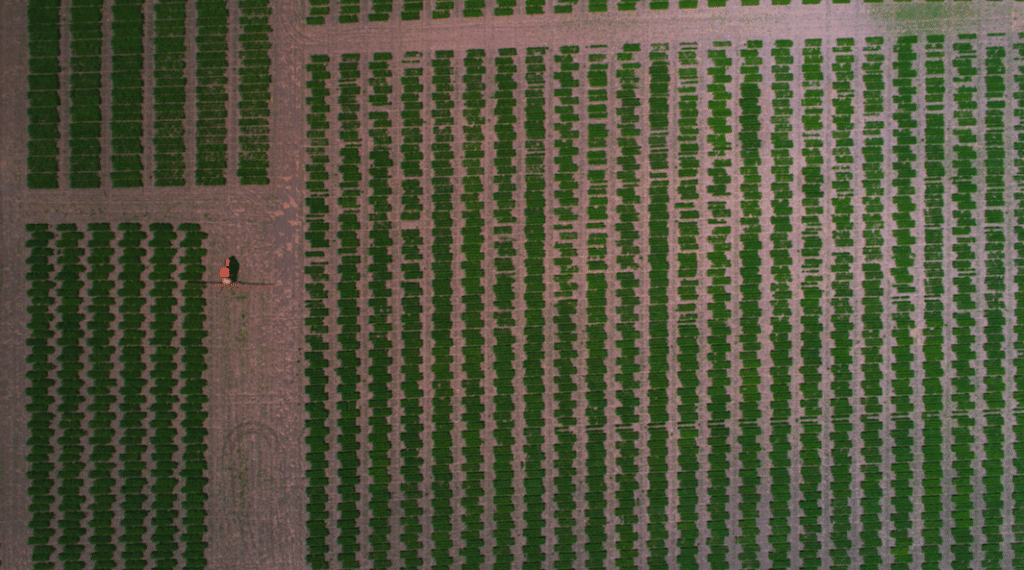In the age of climate change and shifting market preferences, it’s crucial for an international company to have a strong local research base in order to see success.
That’s according to Alexandre Beaudoin, vice-president sales and marketing for Prograin.
“Even though we operate around the world, we have to have high-performance varieties that meet 100% of a grower’s needs. As we’ve increased our customer base on the Prairies, we set up our own research sites in Manitoba and Saskatchewan,” Beaudoin says. “It’s made all the difference for us and helps us to really stand out and differentiate ourselves.”
With a team of experts led by Western Canadian Research Coordinator Britney Gilson, Prograin staff work in the field to select and observe the seeds directly where, ultimately, their market will be.
This approach translates into the best possible end product for customers.
Research and innovation are core values at Prograin, Gilson says. Over the years, this commitment to constant progress enabled the company to build its expertise in the soybeans of Eastern Canada, developing its own proprietary seed varieties in Québec and Ontario.
Now, to better meet the specific needs of growers in Western Canada, Prograin is investing its know-how in research and development of varieties that are specifically bred and developed for the climate of the Prairies.
“We don’t just take varieties we think will grow well on the Prairies and market them. What we’re doing is selecting cultivars that we have actually grown here that we know will perform for growers in different areas of the region,” says Gilson.
Gilson oversees the company’s four Prairie research sites — two in Manitoba (located in Oakville and Morden, specifically) and two in Saskatchewan (in Marquis and Melfort).
Her mission: to take the best lines coming out of Prograin’s research sites in the East and put them to the test on the Prairies — resulting in truly good varieties for Prograin customers.
The process is a long one, she explains.
“I get the crosses from Prograin in Québec and I take those and they go into our Prairie nurseries. We harvest the ones we like — early maturity is something we really focus on — and they then go into our populations,” she says.

But that’s not nearly the end.
“What comes out of our populations is where things really get serious with regard to what customers look for. How many pods? Growers want to know if the crops will lodge or what the plant growth type will be. All of that is important. We hand-harvest what we like best and those go into our yield trials.”
The result is soybean varieties for a number of uses tailored to specific area.
“Earlier maturities do well in the Interlake region of Manitoba, for example. The soil there is very clay-based and it holds water. The earlier maturing the variety is, the better. In the Oakville region of Manitoba, you typically get a couple more growing days, which means later maturing varieties are often more appropriate there,” she says.
But it gets complicated, she adds.
“If you go all the way to Morden, Man., it’s a much sandier soil. There are just as many differences in Saskatchewan. For areas that are rockier, pod clearance becomes an issue. In some areas you can’t see a rock if you want to, so you might not care about pod clearance — you can use your flex headers to take the whole crop.”
As soybeans see a revival on the Prairies as a specialty crop, growers need access to a wide selection of varieties tailored to their region and their own needs as farmers.
Prograin works to provide this through a number of GM and conventional soybean varieties. Its staff work with customers to advise them on the choice of cultivars that will be most profitable to them. Prograin also offers local drop-off points for their customers’ conventional soybean harvests — market access being key to offering a value-added product like conventional soybean.
“Conventional soybean for food purposes is a massive market. The world eats a lot of soy-based products, for example,” Gilson adds. “People are eating more pulses as part of a plant-based diet and our food grade soybean program is a huge part of that.”
For more info visit prograin.ca.












